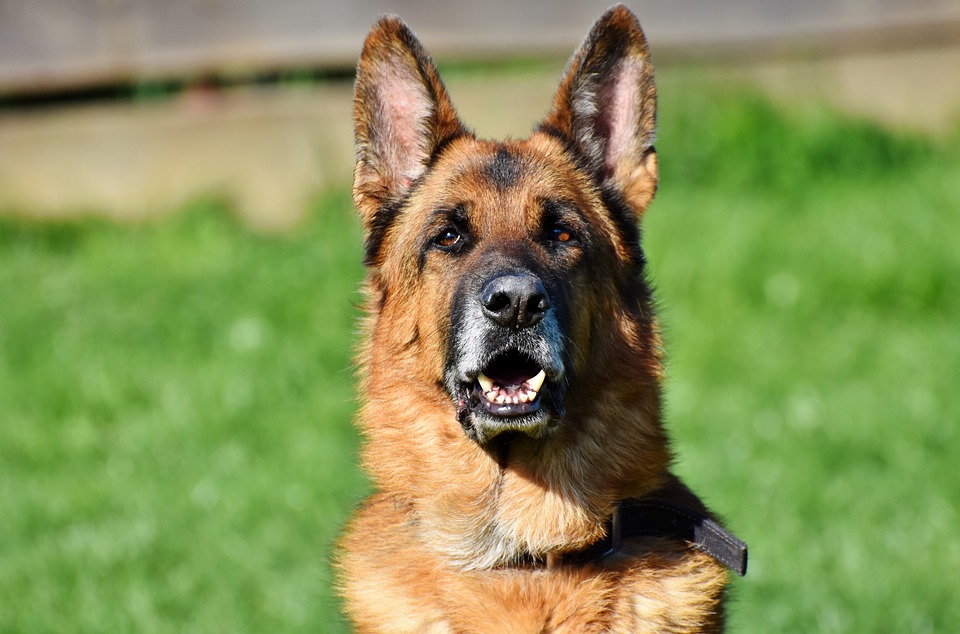
German Shepherd: A Comprehensive Guide
The German Shepherd, a highly intelligent dog breed known for its strength and protective nature, is one of the most popular and versatile breeds worldwide. Renowned for their loyalty and trainability, German Shepherds excel in various roles, including companionship, work, and protection.
History of the German Shepherd
The history of the German Shepherd dog breed dates back to the late 19th century in Germany. Captain Max von Stephanitz is credited with developing the breed, aiming to create a superior herding dog. By selecting the best working dogs from different German districts, he established the German Shepherd as a versatile and capable breed.
The breed’s intelligence and versatility quickly gained recognition, leading to its use in police and military roles during World War I and II. The German Shepherd was recognized by the American Kennel Club (AKC) in 1908 and has since become a beloved breed for various purposes.
Physical Characteristics of the German Shepherd
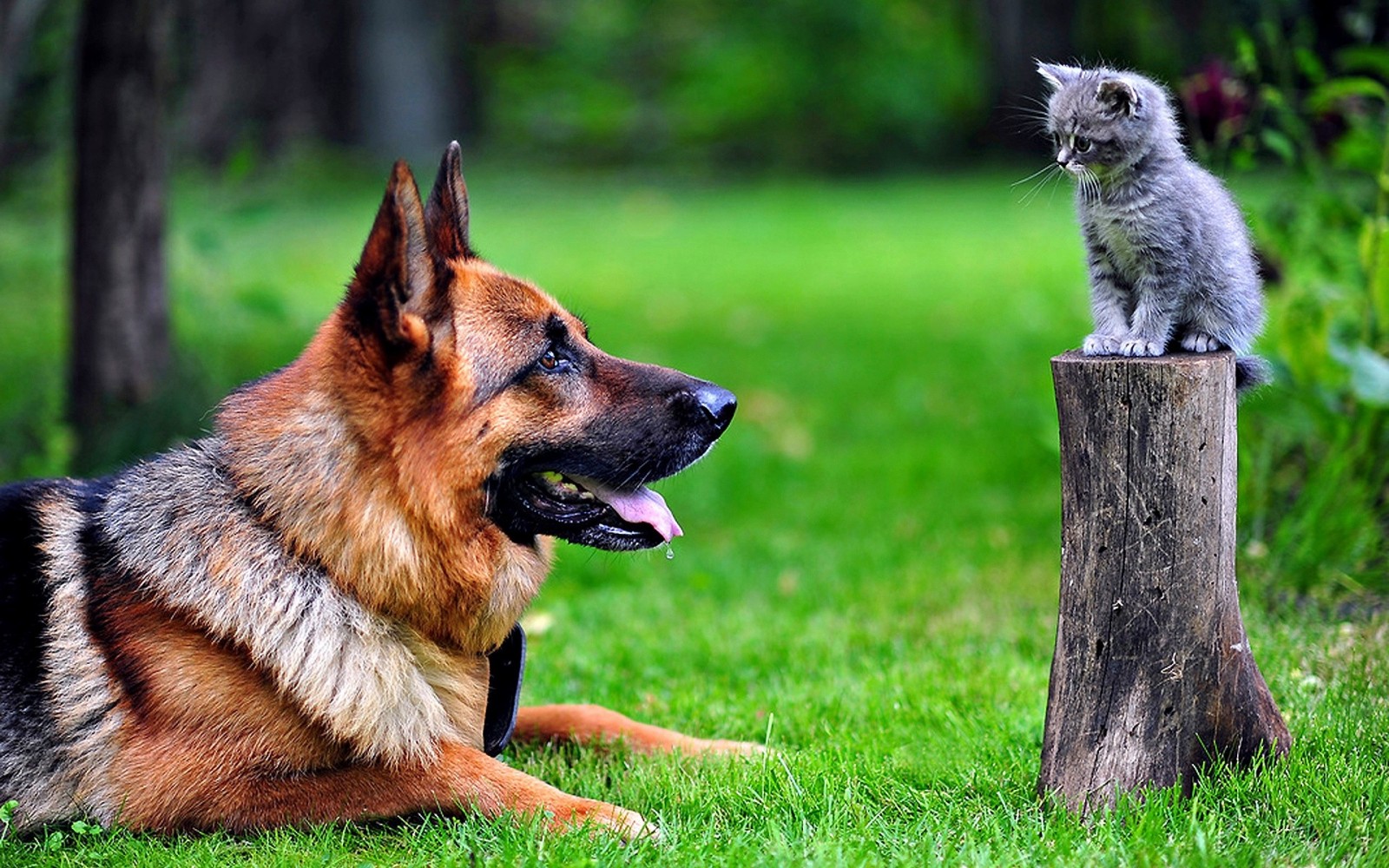
German Shepherds are large, powerful dogs with a well-balanced and muscular build. Males typically stand between 24 to 26 inches at the shoulder and weigh between 65 to 90 pounds, while females are slightly smaller, standing 22 to 24 inches tall and weighing between 50 to 70 pounds.
One of the most distinctive German Shepherd characteristics is their double coat, which can be medium or long and comes in various colors, including black, tan, sable, and bi-color. They have a strong, chiseled head with erect ears, a bushy tail, and a confident, noble expression. According to the AKC, the breed standard emphasizes a well-balanced, agile, and powerful dog with a harmonious build and smooth, flowing gait.
Temperament and Personality
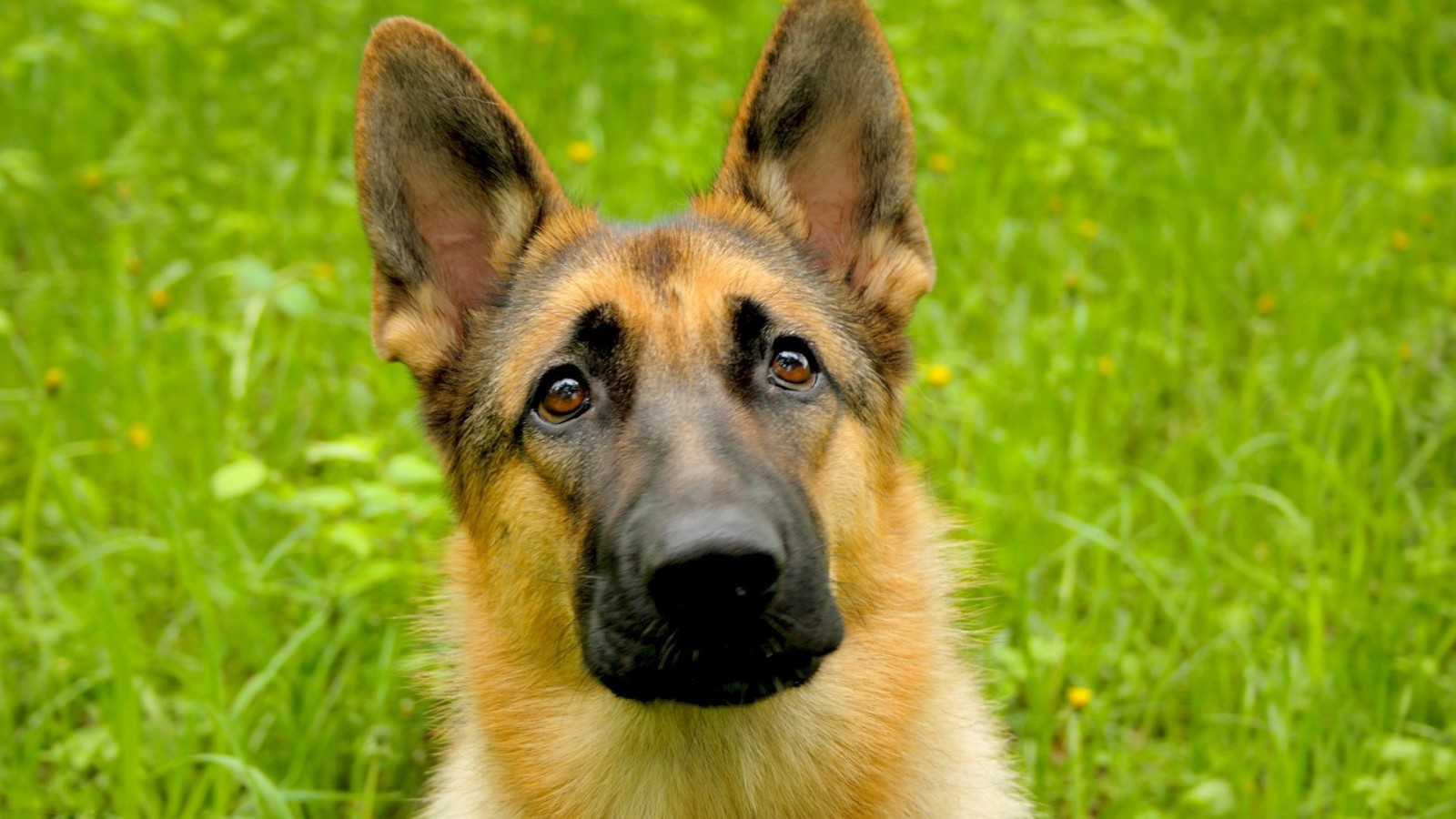
The German Shepherd temperament is often described as intelligent, loyal, and protective. These dogs are known for their courage and confidence, making them excellent guardians and companions. German Shepherds are highly trainable and eager to please, which is why they excel in obedience training and various dog sports.
Despite their protective instincts, German Shepherds are affectionate and gentle with their families. Early socialization and consistent training are crucial to ensure they develop into well-mannered adults. They are generally good with children and other pets when properly introduced and socialized.
Health and Common Issues
Like all dog breeds, German Shepherds are prone to certain health issues. Some of the most common German Shepherd health issues include:
- Hip Dysplasia: A genetic condition that affects the hip joints, leading to arthritis and mobility issues.
- Elbow Dysplasia: A similar condition affecting the elbow joints, causing pain and lameness.
- Degenerative Myelopathy: A progressive spinal cord disease that affects coordination and mobility.
- Gastric Dilatation-Volvulus (Bloat): A life-threatening condition where the stomach twists, requiring immediate veterinary attention.
- Exocrine Pancreatic Insufficiency (EPI): A condition where the pancreas does not produce enough digestive enzymes, leading to malnutrition and weight loss.
Regular veterinary check-ups, a balanced diet, and proper exercise are essential to keep German Shepherds healthy and to manage potential health issues early on.
Care and Maintenance
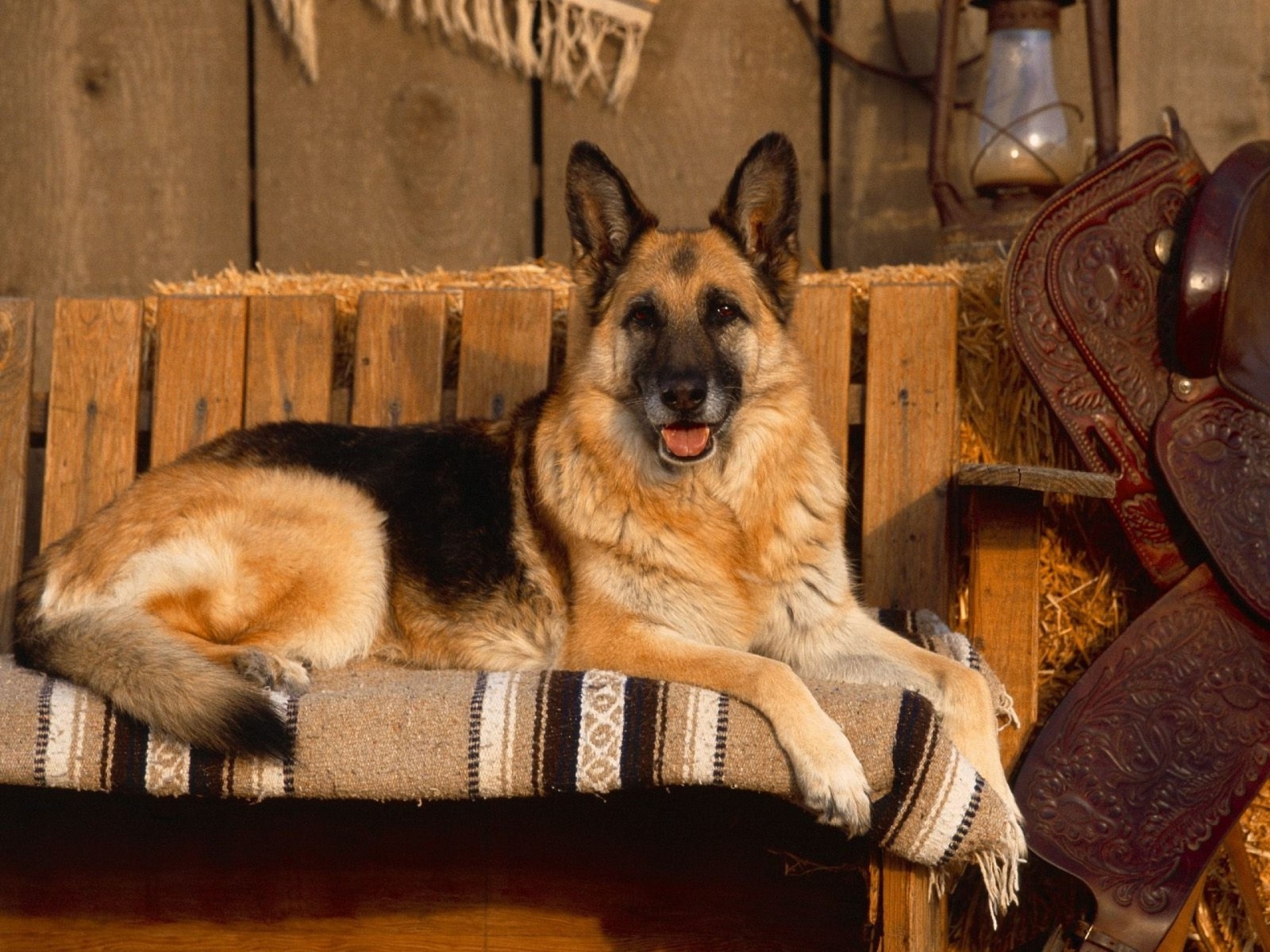
German Shepherd care involves regular grooming, exercise, and mental stimulation. Their double coats shed year-round, with heavier shedding occurring in the spring and fall. Regular brushing, at least once a week, is necessary to remove loose hair and prevent matting. Bathing should be done as needed, typically every few months.
Dental care is important, so brushing their teeth several times a week is recommended to prevent dental disease. Regular nail trimming and ear cleaning are also essential aspects of German Shepherd care to prevent infections and maintain overall hygiene.
Training Your German Shepherd
Training a German Shepherd requires consistency, patience, and positive reinforcement techniques. Due to their intelligence and eagerness to please, German Shepherds typically excel in obedience training and can learn a wide range of commands and tasks.
Early socialization and puppy training classes are highly recommended to ensure they develop good manners and confidence. Positive reinforcement methods, such as treats, praise, and playtime, are effective in training German Shepherds. They respond well to a calm and patient approach, making the training process enjoyable for both the dog and the owner.
Exercise Needs
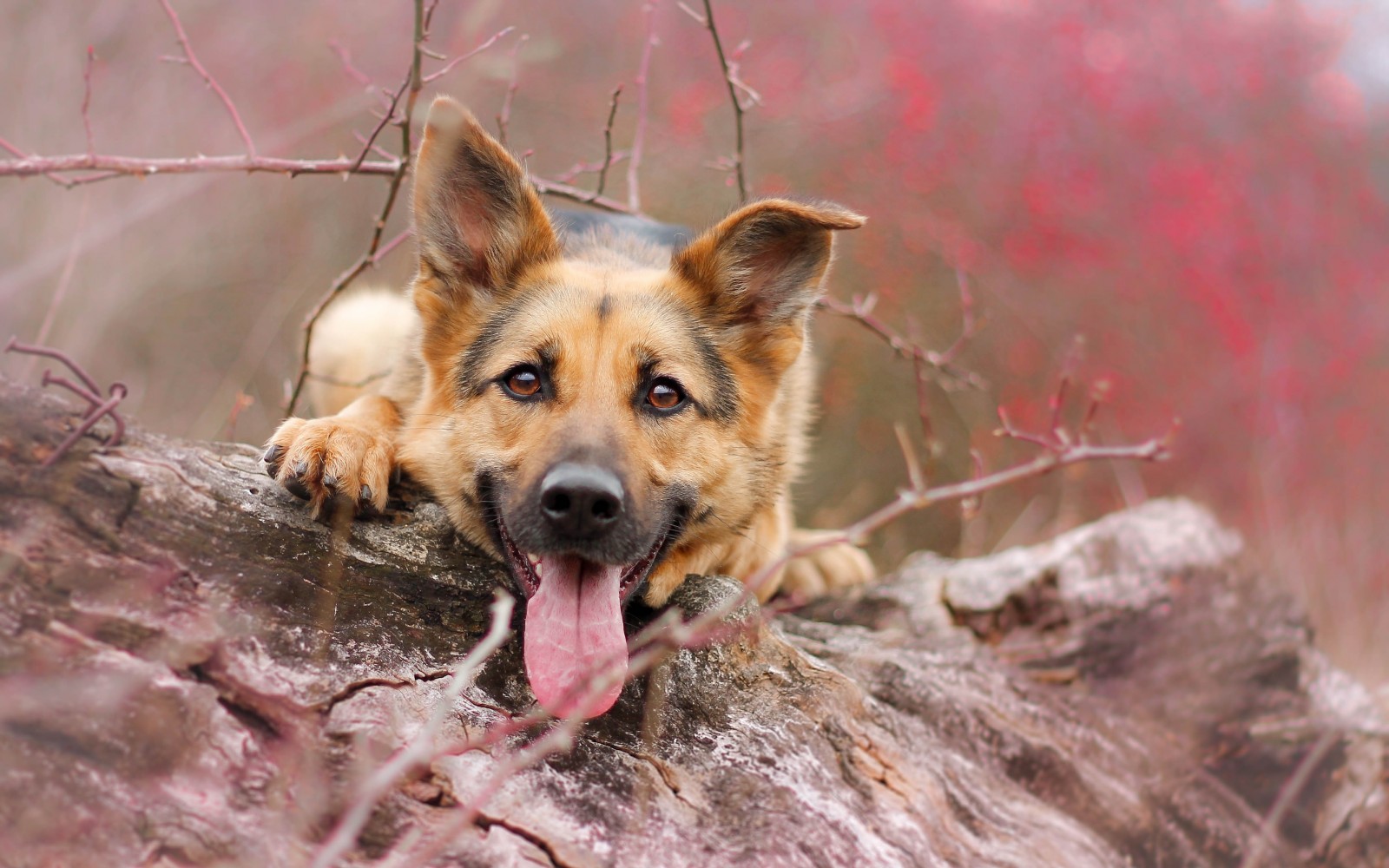
German Shepherds have high exercise needs and require plenty of physical activity to stay happy and healthy. As an active and energetic breed, they thrive on activities that challenge their bodies and minds. Daily walks, runs, and play sessions are essential to burn off their energy.
Activities such as agility training, obedience exercises, and fetch are excellent ways to keep a German Shepherd engaged and physically fit. Without sufficient exercise, German Shepherds can become bored and may develop behavioral issues such as chewing, digging, or excessive barking.
German Shepherd Puppies: What to Expect
Bringing home a German Shepherd puppy is an exciting and rewarding experience. German Shepherd puppies are known for their playful and curious nature. It’s important to provide them with a safe and stimulating environment to explore and learn.
Early socialization is crucial, exposing them to different people, environments, and other animals to help them grow into well-adjusted adults. Puppy-proofing your home and providing plenty of chew toys can prevent destructive behavior during the teething phase.
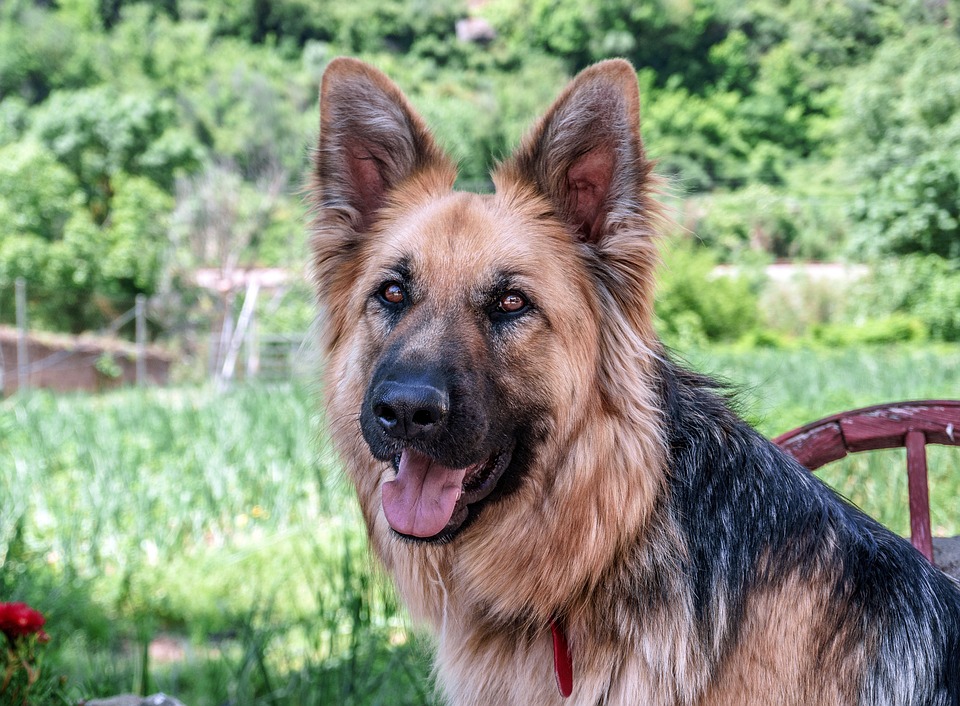
Feeding German Shepherds: Puppy, Adult, and Senior Diets
Proper nutrition is vital for the health and development of German Shepherds at every stage of life.
- Puppies: German Shepherd puppies require a diet rich in protein and fat to support their rapid growth and energy needs. High-quality puppy food that meets their nutritional requirements is essential. Look for formulas with real meat as the first ingredient and avoid fillers like corn and soy.
- Adults: Adult German Shepherds benefit from a balanced diet that provides the right amount of protein, fat, and carbohydrates. It’s important to monitor their weight and adjust their food intake based on their activity level to prevent obesity. High-quality dry kibble, supplemented with lean meats, vegetables, and grains, can ensure they get the nutrients they need.
- Seniors: Senior German Shepherds may require a diet lower in calories but still rich in nutrients to support their aging bodies. Foods formulated for senior dogs often contain joint supplements like glucosamine and chondroitin to help maintain mobility. Additionally, easily digestible proteins and fibers can promote healthy digestion.
Behavior with Children and Other Dog Breeds
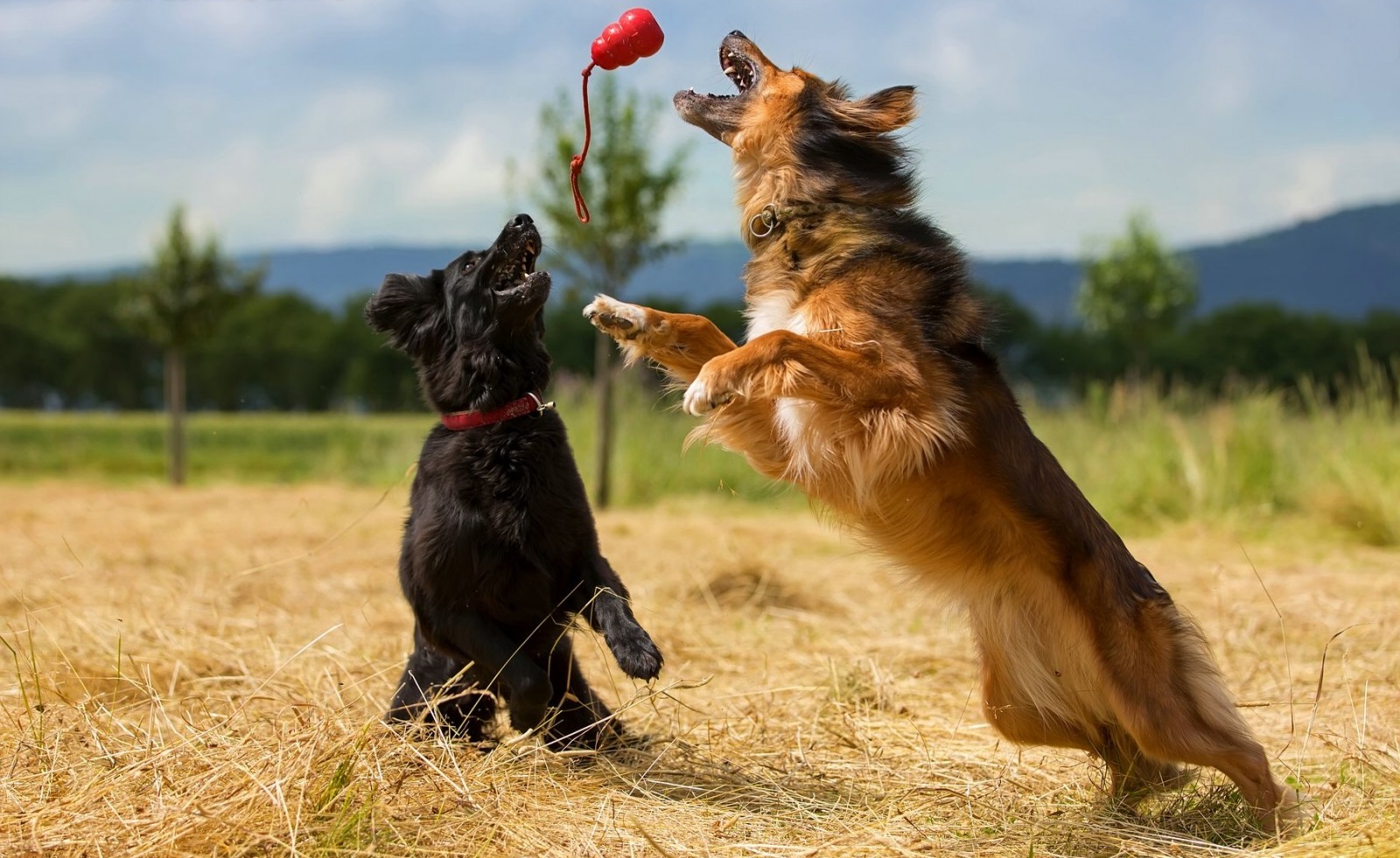
German Shepherds are generally excellent with children and make wonderful family pets. Their protective nature makes them great guardians for the home, but it’s important to supervise interactions, especially with younger children, to ensure safety for both the dog and the child.
With other dogs, German Shepherds can be sociable and enjoy companionship. They get along well with other pets and can thrive in multi-pet households. Early socialization and training can help promote harmonious relationships with other animals and prevent any potential dominance issues.
Ideal Environment for Their Development
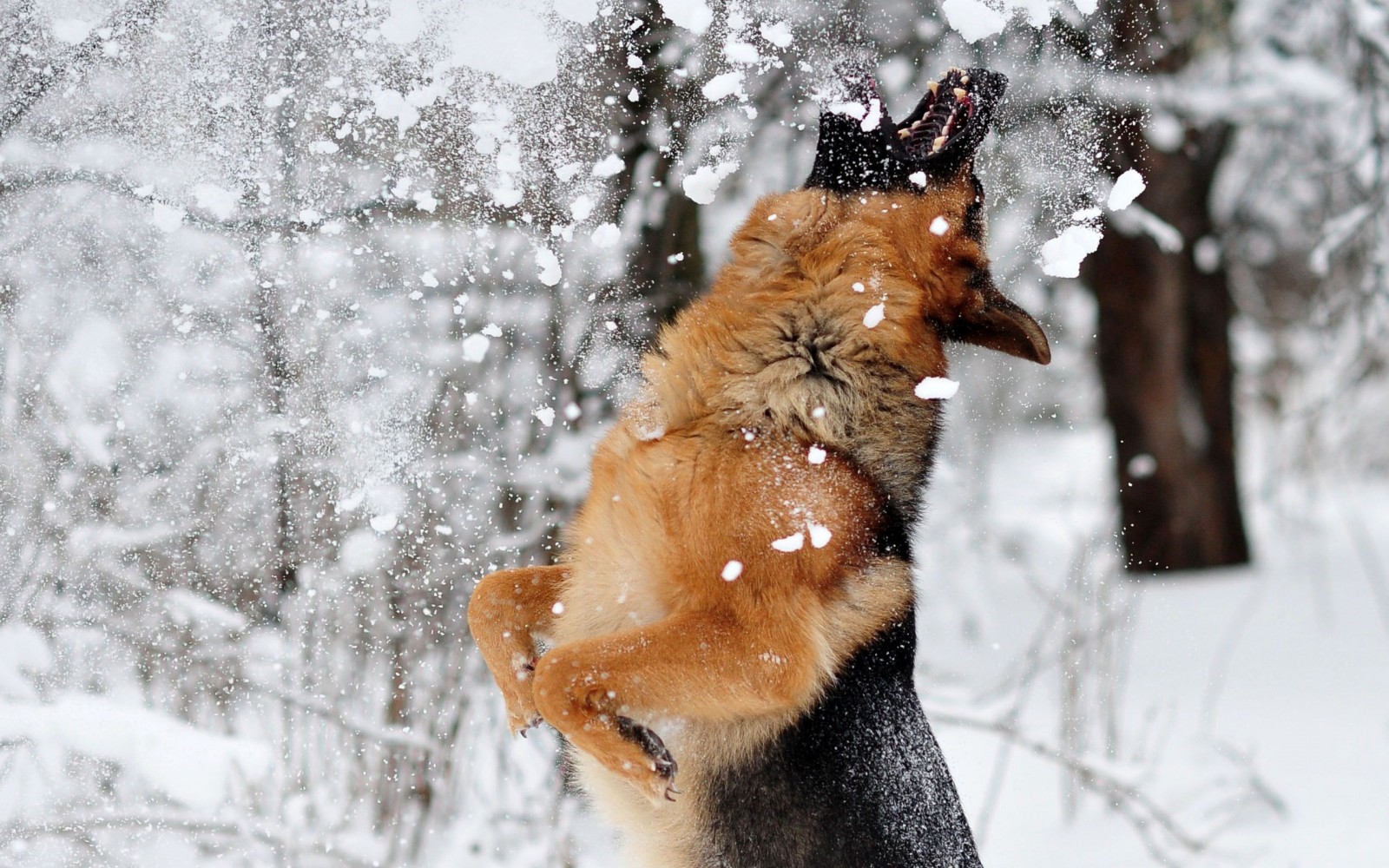
German Shepherds thrive in environments where they can get plenty of exercise and mental stimulation. They are adaptable dogs and can do well in both urban and rural settings, provided they receive adequate physical activity. Homes with large, fenced yards where they can run and play freely are ideal for this breed.
German Shepherds do not do well when left alone for long periods, as they can develop separation anxiety. They thrive in households where someone is often home or where they can be included in family activities. A stimulating and active environment is key to keeping a German Shepherd happy and healthy.
Standards and Usage According to the AKC
According to the American Kennel Club (AKC), the breed standard for German Shepherds emphasizes a well-balanced, agile, and powerful dog with a harmonious build and smooth, flowing gait. They are known for their confidence, courage, and keen intelligence, making them suitable for various roles beyond companionship.
German Shepherds in Various Activities

German Shepherds are incredibly versatile and excel in numerous activities and roles due to their intelligence, strength, and trainability. They are widely used as working dogs in police and military roles, search and rescue operations, and as service dogs for individuals with disabilities. Their keen sense of smell and ability to learn complex tasks quickly make them invaluable in these capacities.
In addition to working roles, German Shepherds excel in dog sports such as obedience, agility, tracking, and herding. Their natural herding instincts, combined with their trainability and eagerness to please, make them outstanding competitors in these fields.
By understanding the unique characteristics, needs, and care requirements of the German Shepherd dog breed, potential owners can provide the best possible life for these intelligent and strong dogs. Integrating personal experiences and thorough research ensures that the German Shepherd remains a cherished and well-cared-for companion.
Frequently Asked Questions
Are German Shepherds good with children?
Yes, German Shepherds are known for their gentle and protective nature, making them excellent companions for families with children. They are patient and tolerant of handling and enjoy being included in family activities.
Do German Shepherds require a lot of grooming?
German Shepherds have a double coat that requires regular grooming to keep it healthy and free of tangles and mats. Their coat should be brushed several times a week, especially during shedding season, to remove loose hair and prevent mats from forming. Additionally, their nails should be trimmed regularly, and their ears should be checked and cleaned as needed to prevent wax buildup and infections.
